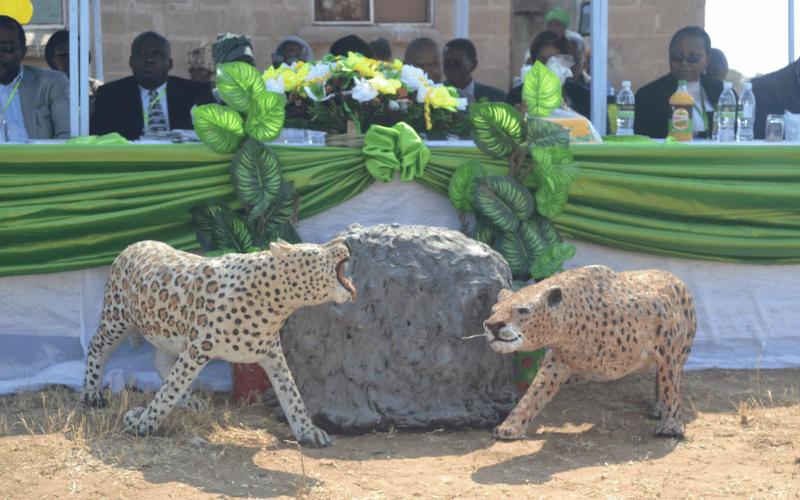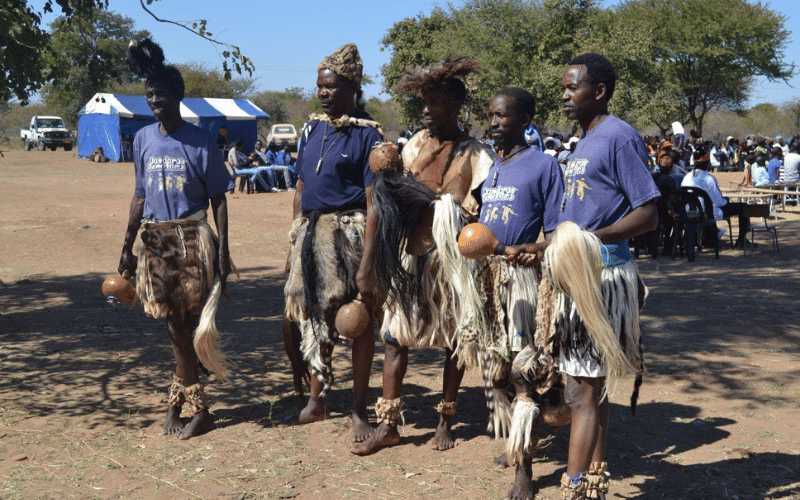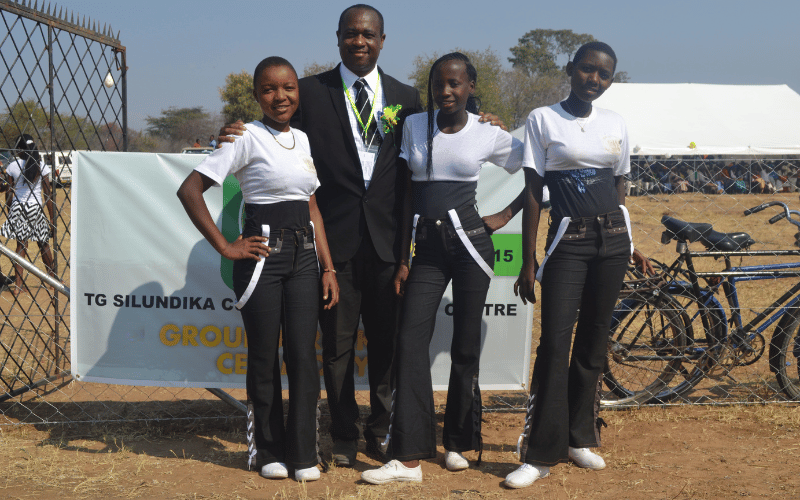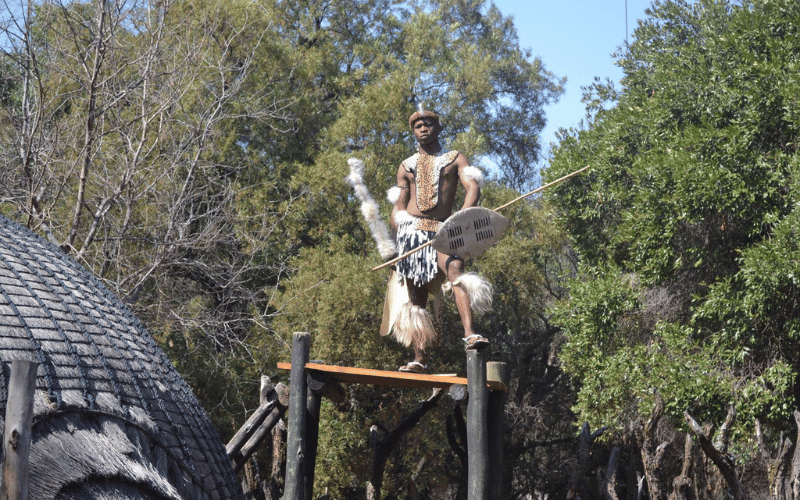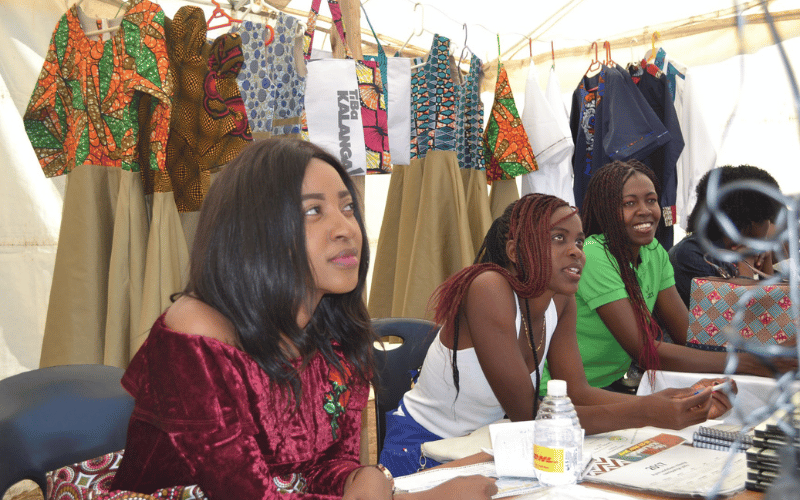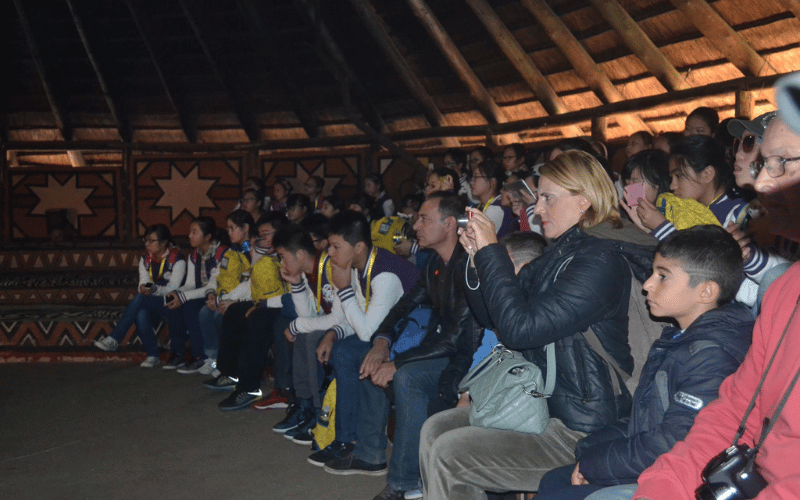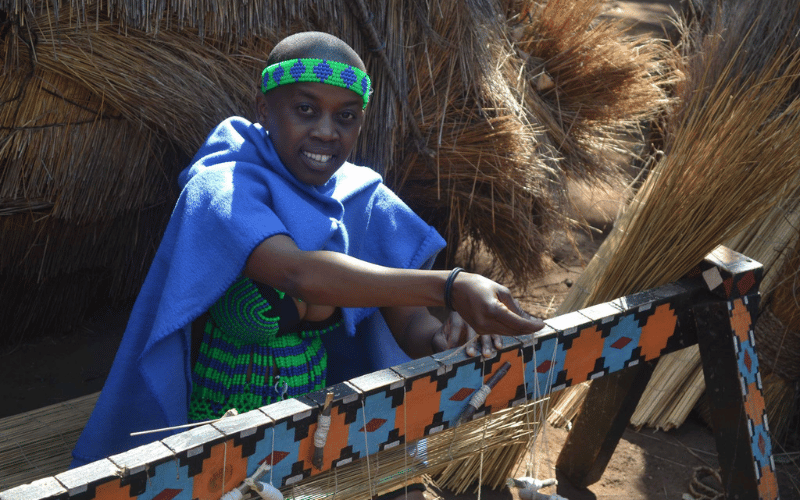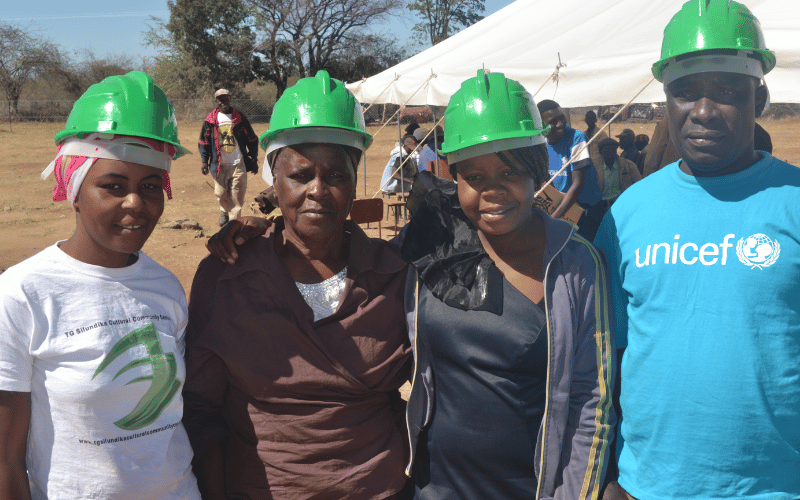About Us
How it all began
TG Silundika and ZC Nkobi.
Welcome to the TG Silundika Cultural Community Centre
The Tarcisius George Silundika Cultural Community Centre & Memorial Library is a non-profit, privately-owned social infrastructure facility nestled in the Gala communal area of Ward 6, registered with the Bulilima Rural District Council in Zimbabwe.
This initiative is a tribute to the enduring legacy of the late Zimbabwean nationalist and national hero, Tarcisius Malan George Silundika, envisioned and established by his surviving family members. Operating under the umbrella of a registered family trust, the centre collaborates closely with its sister organization, Stichting The Silundika Family Foundation & the Zenzo Nkobi Heritage Gallery, registered in the Netherlands. The TGSCCC stands as a beacon of cultural heritage preservation and community development, honoring a profound legacy while actively shaping a brighter future for our community.
Read more about the lives of TG Silundika and ZC Nkobi
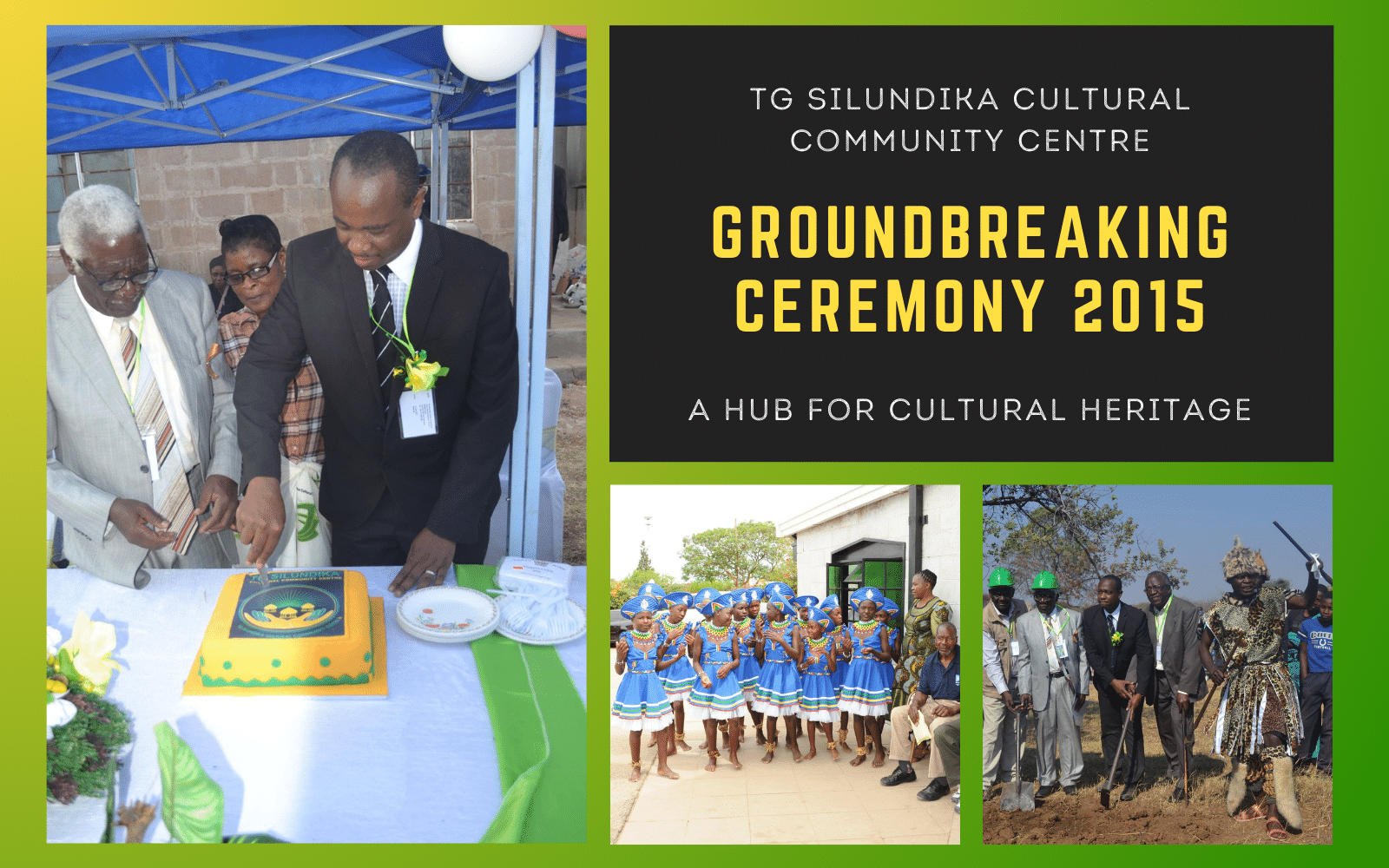
A Vision of Excellence
The story of the TG Silundika Cultural Community Centre begins with the vision of the late TG Silundika, a national liberation hero who dedicated his life to the betterment of his community and the country. His enduring legacy lives on through his surviving children, who shared a collective vision: to establish a standard of excellence in cultural heritage sustainability in southern Africa.
The inspiration for this visionary project sprang from a deep-rooted desire to celebrate and preserve the Kalanga culture—a culture steeped in traditions, artistry, and history. It was a call to create a space where Kalanga heritage could thrive and be shared with generations to come.
A Hub for Cultural Heritage
The TG Silundika Cultural Community Centre is more than just bricks and mortar; it’s a beacon of cultural pride. It is envisioned as a space where Kalanga traditions will be celebrated through music, dance, art, and storytelling. It will serve as a platform for the transmission of indigenous knowledge to younger generations, fostering a sense of identity and belonging.
The Centre’s mission goes beyond preserving the past; it’s about fostering a dynamic cultural ecosystem that adapts and thrives in the present and the future. Through workshops, events, and collaborations, the Centre aims to create a vibrant cultural community that embraces diversity and invites all to partake in the beauty of Kalanga heritage.
Looking Forward
The story of the TG Silundika Cultural Community Centre and the TiBaKalanga Festival is an ongoing narrative—one filled with hope, aspirations, and the enduring spirit of the Kalanga people. With each passing day, the Centre and the festival grow closer to their vision of establishing a standard of excellence in cultural heritage sustainability in southern Africa.
As they continue to take shape, they invite all to join in this journey—a journey that celebrates culture, preserves heritage, and empowers communities. The dream has become a reality, and the TG Silundika Cultural Community Centre and TiBaKalanga Festival stand as testaments to the power of a shared vision, unity, and the indomitable spirit of the Kalanga people.
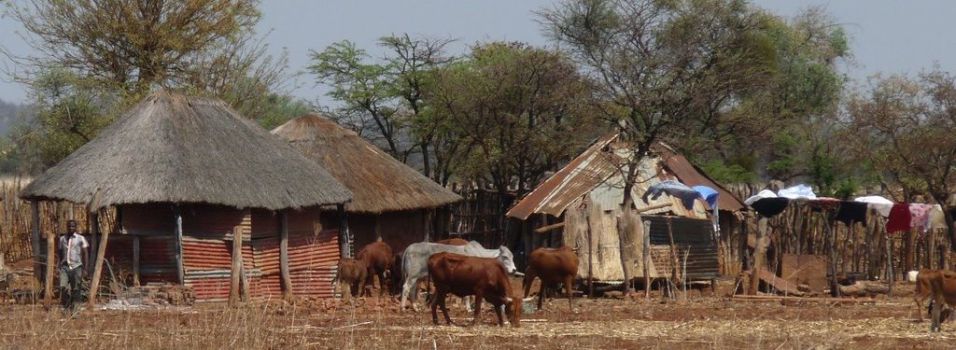

The Silundika Family Foundation, also known as Stichting The Silundika Family Foundation, was established in 2015 and registered in The Netherlands to honour and preserve the legacy of the late Tarcisius Malan George Silundika, one of Zimbabwe’s most revered national liberation heroes. In the same year, the groundbreaking ceremony for the TG Silundika Cultural Community Centre was held, marking the beginning of a transformative journey for the Kalanga community. Over the past decade, the foundation has spearheaded resource mobilisation efforts to support a wide range of community development initiatives under the TG Silundika Cultural Community Centre, located in Bulilima District, southwestern Zimbabwe. The foundation remains dedicated to empowering the community through cultural preservation, educational programmes, and initiatives that foster creativity and economic growth. Its efforts are not only focused on sustaining the memory of Tarcisius Silundika but also on building opportunities for future generations, ensuring that the Kalanga heritage remains vibrant and influential in the years to come.

The TG Silundika Cultural Community Centre was established on the foundations of the Silundika family homestead and officially launched following its groundbreaking ceremony in 2015, with the full backing of the local district council. Situated in the heart of Bulilima District, this centre has become a cornerstone for education, arts, culture, and health awareness, serving Ward 6 villagers and surrounding communities. Marking its 10th anniversary, the centre continues to thrive as a hub of empowerment and cultural preservation. Guided by the Silundika Family Foundation’s directors—Felix Silundika, Tina Nkobi, Mark Braithwaite, and Pauline Nomthandazo Silundika—the centre hosts initiatives such as the Women Empowerment Project, the annual TiBaKalanga Festival, and the Kalanga Traditional Food Culinary Competition. These projects celebrate Kalanga heritage while fostering community growth. As we celebrate this milestone, we reflect on the centre’s unwavering commitment to unity and progress, ensuring its role as a beacon for cultural and community development in the years ahead.
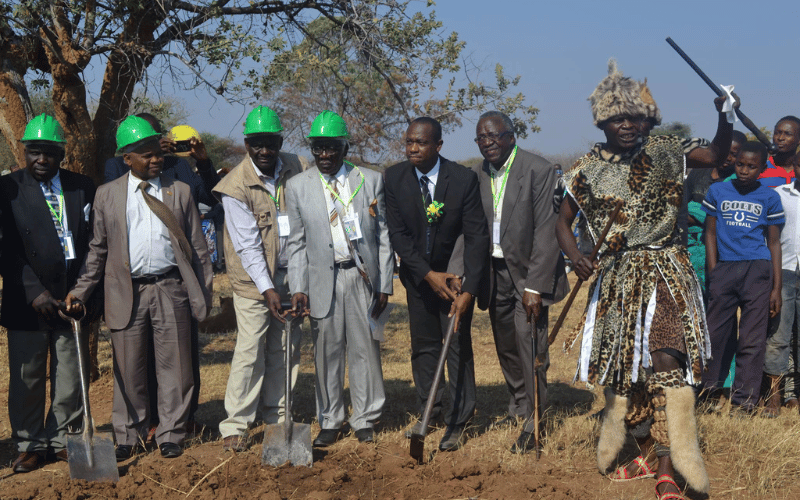
The Groundbreaking Ceremony: A Momentous Occasion
The journey from dream to reality reached a pivotal moment with the groundbreaking ceremony of the TG Silundika Cultural Community Centre. It was a day filled with hope, anticipation, and a profound sense of purpose.
The ceremony was attended by community members, local leaders, and dignitaries who recognized the significance of this cultural hub. A traditional imbongi (praise singer) set the tone with spirited verses that resonated with the beating heart of Kalanga culture.
As the shovels touched the earth, the symbolic act of breaking ground symbolized more than just construction; it marked the breaking of barriers and the birth of a new era. The Centre, built in the homestead of TG Silundika, stands as a testament to the commitment of the Silundika family to honor their father’s legacy and empower their community.
This groundbreaking event exemplified the unwavering dedication to preserving and promoting the rich Kalanga heritage. It signaled a renaissance—a revival of traditions, art, and unity. With every scoop of soil, we laid the foundation for a cultural epicenter where generations would gather, learn, and celebrate their shared identity. The Centre’s inception represents the culmination of a dream, the embodiment of resilience, and the promise of a brighter cultural future for southern Africa.
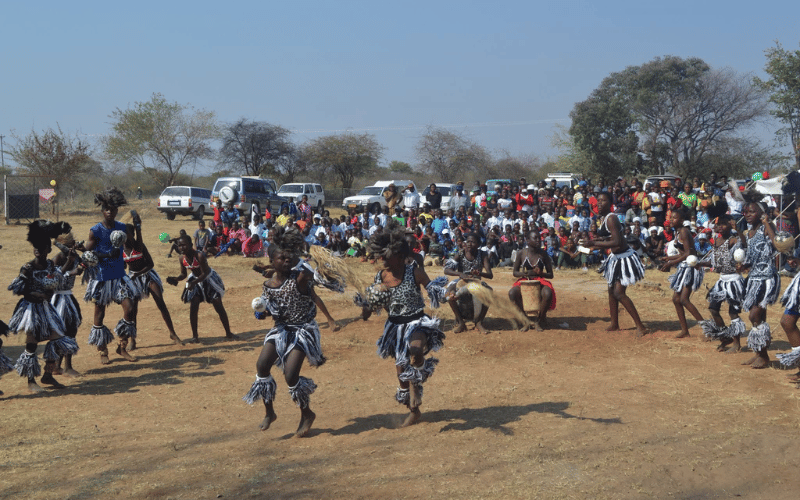
The Birth of TiBaKalanga Festival
The dream of the TG Silundika Cultural Community Centre didn’t stop at its construction; it ignited another vision—an annual celebration that would showcase Kalanga culture in all its glory. This vision gave birth to the TiBaKalanga Festival, a delightful two-day extravaganza that’s more than just an event; it’s an embodiment of Kalanga cultural heritage.
The festival was born from the seeds sown during an international cultural marketing workshop at the Centre in 2016, facilitated by a distinguished US anthropologist, Professor Gordon Bronitsky. This workshop nurtured the vision of celebrating and preserving the Kalanga culture. It was a call to action that led to the creation of the TiBaKalanga Festival.
The festival is a vibrant celebration of traditions, arts, and the rich tapestry of our heritage. It brings together people from all walks of life to revel in the beauty of Kalanga culture. From traditional dance performances that echo the rhythms of our ancestors to exhibitions showcasing local crafts and artworks, the TiBaKalanga Festival is a vibrant tapestry of cultural expression.
As each year passes, the festival grows stronger, fostering unity and pride in our cultural identity. The TiBaKalanga Festival is not just an event; it’s a living, breathing testament to the resilience and vibrancy of our culture.
Highlights from the Groundbreaking Ceremony 2015

